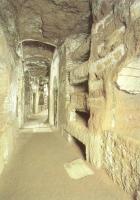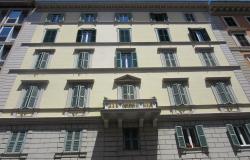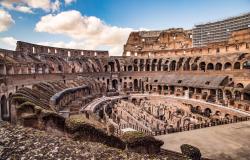What better job aspiring Indiana Jones's can have than "taking care of ancient sacred cemeteries, look after their preventive preservation, further explorations, research and study, and also safeguard the oldest mementos of the early Christian centuries, the outstanding monuments and venerable Basilicas in Rome, in the Roman suburbs and soil, and in the other Dioceses in agreement with the respective Ordinaries".
That is precisely the mission statement of the Pontifical Commission for Sacred Archeology - and it's very own Indiana Jone is its newly appointed superintended Fabrizio Visconti - as Cindy Wooden of the Catholic News Service - reports.
Visconti did not aspire to be an Indiana Jones - he admits that he is more into literature than treasure hunting. He fell in love with archeology at university.
He is also quick to dispel any ideas that work at this particular Pontifical Commission is glamorous. It it hard work require constant dedication and attention such as spending a full month with surgical tools and cotton balls cleaning a third-century sarcophagus. The rewards, however, can be incredible.
While restoring a ceiling in the Catacombs of St. Thecia they found what is believe to be the oldest known image of the apostle Paul - hidden behind a layer of limestone crust.
And it is this tension between discovering and preserving that Visconti needs to wrestle with every day. Italy has 140 catacombs, and especially the ones within the walls of Rome can still reveal a lot as they have survived the passage of time because people used them as graveyards filling them with dirt. The dirt sealed the catacombs and preserved them.
As Visconti tells the Catholic News Service "Opening a catacomb means allowing its degradation". The frescoes and inscriptions start fading and the sweat and breathe of the visitors adds moisture to the air speeding up the growth of mold and the flaking of painted surfaces.
His group is currently working on the Catacombs of Pretestato - which they hope to open to the public in two years time. Many catacombs, however, still remained closed and unexplored.







